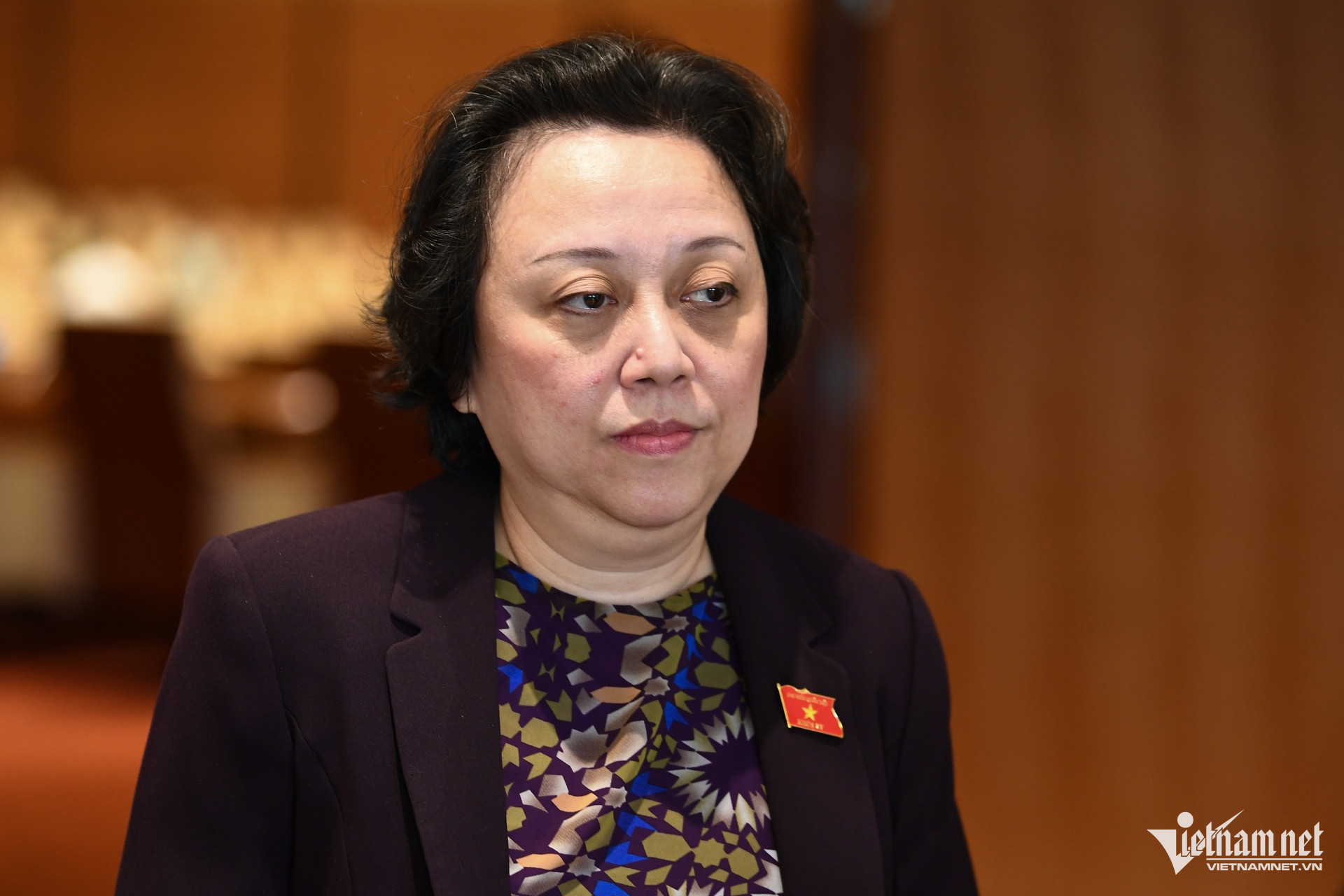
On May 22, 2025, the National Assembly discussed the draft of the revised Inspection Law. Most deputies believe that it is necessary to reconsider the regulations on extending inspection durations and establishing mechanisms to avoid overlap between inspections and audits.
Lan noted that grassroots inspections lack specialized teams, thus depending heavily on inter-agency coordination.
She warned that running the two-tier inspection system at government and provincial levels, there could be "more bosses, fewer staff."
She expressed concern that the draft law doesn’t mention solutions to enhance the effectiveness and authority of inspection teams, and to address the problems that "tie inspectors’ hands and feet." For instance, regulations should be relaxed to prioritize surprise inspections over planned ones.
According to her, planned inspections are often ineffective as lists are publicized early in the year with leaders’ approval. Inspected units are notified in advance to prepare documents.
"By the time inspectors arrive, goods have been hidden. Pharmacies claim they don’t sell functional foods. It’s hard to catch violations when planned inspections are announced loudly beforehand," she explained.
Pham Van Hoa, a National Assembly deputy from Dong Thap, warned that as inspection agencies at ministerial and district levels no longer exist, the tasks on the government and provincial inspectors will become heavier. Particularly, provincial inspectors will have a big workload at the grassroots level.
Therefore, clear task and authority assignments for provincial inspections are needed.
"Certain fields, like food safety, environment, counterfeit goods, fake milk, and low-quality products, require specialized inspection agencies. Without ministry-level inspections, can the Government Inspectorate handle all these tasks?" Hoa said.
Prolonged inspections disrupt business operations
Deputy Nguyen Tam Hung from Ba Ria – Vung Tau said he opposed changing the time unit from "days" to "working days" in the draft revised Inspection Law.
"Extending inspection durations to 120 working days, including re-inspections—equivalent to six months—is too long which doesn’t come in line with the government’s administrative reform goals," he stated.
“This could disrupt the operations of inspected entities and reduce the efficiency of state management,” he said.
He also suggested adding transitional provisions for inspection conclusions to avoid legal gaps and ensure continuity of agencies’ responsibilities.
Deputy Pham Van Hoa from Dong Thap agreed that prolonged inspections affect entities’ operations, and called for clearer explanations on why "days" have been changed to "working days” in the draft.
The current regulation sets inspections at 60 days, but the draft’s "60 working days" increases the actual time by about 40 percent, to 84 days.
Avoiding overlap between inspections and audits
Deputy Tran Thi Nhi Ha from Hanoi noted that the draft only mentions the principle of avoiding overlap between inspections and audits but lacks specifics on controlling overlap between inspections and checks.
"This is a common issue, especially in enterprise management. Repeated inspections and checks increase compliance costs and negatively impact the investment environment," she said.
She cited the Politburo’s Resolution 68 which mandates ending unnecessary and prolonged inspections and checks to be sure that enterprises only have to bear inspection once a year unless businesses show clear violations.
"Without a specific coordination mechanism between inspections and checks, implementing this directive effectively will be challenging," she said.
Hoa from Dong Thap agreed with her, calling for clear distinctions to avoid overlap. While specialized inspections are eliminated, ministries retain authority for specialized examinations, and the Government Inspectorate conducts inspections.
He proposed clear regulations to prevent re-checking previously inspected content or vice versa, which complicates matters for entities.
"There must be a clear distinction: what is an inspection, and what is a specialized examination? Inspections can impose penalties, while examinations typically only recommend actions. This ambiguity can affect the operations of inspected entities," Hoa stated.
The draft law establishes a single definition of inspection, eliminating the distinction between administrative and specialized inspections. Inspection is defined as the activity of reviewing, evaluating, concluding, and recommending actions by inspection agencies regarding the implementation of policies, laws, duties, and powers of agencies, organizations, and individuals, following procedures prescribed by law.
The Government Inspectorate states that this definition comprehensively covers both the inspection of policy and law implementation and the inspection of duties and powers of agencies, organizations, and individuals.
The report clarifies that this definition is inherited from the 2022 Inspection Law, with revisions and improvements to align with current inspection policies and practices.
Tran Thuong